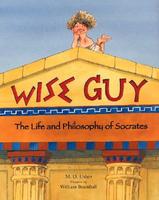I suppose I should have posted about the Golden Calf Incident before coming to this, but I’ve blogged about it before. To nutshell; Israel turned from the God of true freedom and went back to the Egyptian god of slavery (to money, sex and power). The sons of Levi stayed true and when Moses returned from the mountain and the Face of God they drew their swords and killed all the apostate priests-father’s and first born sons, of the other tribes. With the blood still wet on their swords they became the priests of Israel. On entering the Promised Land the Levites were not allotted a portion of land as they were to live among the other tribes who invited them “be to us a father and a priest.”
The priesthood of Melchizedek, the priesthood of father and son was therefore put on hold as only the fathers and sons of the tribe of Levi were now priests, until David came along. King David was of the tribe of Judah but as King he was also ordained (by Samuel) as priest and could make the sacrifices. It was a special honour. David was a type (or shadowy foretelling) of Christ in that he was a Priest and King and through his psalms we also see he was a prophet. Solomon on being made King was given the blessing and birthright of a first born son even though David had other sons who were older.
Solomon’s priesthood was not automatically conferred. It is up to God who should be ordained and Solomon was supposed to wait for the prophet to anoint him with oil-but on one occasion he did not have the patience to wait and took upon himself the right to make the sacrifice. This may well have been the act of pride that began to see his loss of that great gift of Wisdom. He should have understood that it is God’s place to decide on who will be a priest. No one can take that on for themselves. (Which is why popes can’t cave on ordaining women).
As his reign continued Solomon’s wisdom became nothing more than cleverness in political games. Having build the stunningly beautiful Temple as God had requested he turned to other gods to please his political alliances made through marriage. (A man who doesn’t respect his priesthood doesn’t respect marriage either).
From being a type of Christ -prophet, priest and king of wisdom and righteousness (like Melchizedek) Solomon became a type of anti-Christ, burdening his people with heavy taxes and caring only for his wealth and power which he thought he could find through other gods.
It ended badly. The Kingdom was split and then overcome. Even the Levitical priesthood was scattered among the nations and the Temple was destroyed. The promise that both the throne of David and the priesthood of Melchizedek would be renewed seemed utterly impossible. But of course, nothing is impossible for God.

 Jesus went around referring to Himself as “The Bridegroom”. I think it is fair to say that the leaders of the Temple understood Him all too well-and they didn’t like it. He was calling Himself a priest-a priest of the old pre Levitical order-a priest like David and Solomon and a priest like Adam and Abraham. He also went around forgiving sins; something only God can do. Something the High Priest only had the authority to do once a year (remember when Zachariah met the angel and lost his voice so he couldn’t give the absolution blessing?). Jesus offered proof of His authority through His miracles.
Jesus went around referring to Himself as “The Bridegroom”. I think it is fair to say that the leaders of the Temple understood Him all too well-and they didn’t like it. He was calling Himself a priest-a priest of the old pre Levitical order-a priest like David and Solomon and a priest like Adam and Abraham. He also went around forgiving sins; something only God can do. Something the High Priest only had the authority to do once a year (remember when Zachariah met the angel and lost his voice so he couldn’t give the absolution blessing?). Jesus offered proof of His authority through His miracles.
 The next stage in looking at the history of the priesthood has to be to have a look at the rather obscure character in Scripture called Melchizedek. His name might not be his name it might- and more likely was- be a title. Melchizedek means King of Righteousness, something that has profound meaning to Christians as Christ is our Melchizedek. We know, as we read Genesis that Abraham was a priest as he offered sacrifice but Melchizedek seems to be the High Priest. Both he and Abraham are priests of the same God.
The next stage in looking at the history of the priesthood has to be to have a look at the rather obscure character in Scripture called Melchizedek. His name might not be his name it might- and more likely was- be a title. Melchizedek means King of Righteousness, something that has profound meaning to Christians as Christ is our Melchizedek. We know, as we read Genesis that Abraham was a priest as he offered sacrifice but Melchizedek seems to be the High Priest. Both he and Abraham are priests of the same God.














































